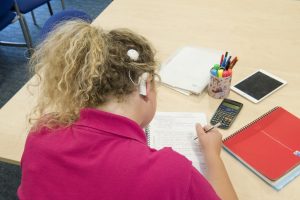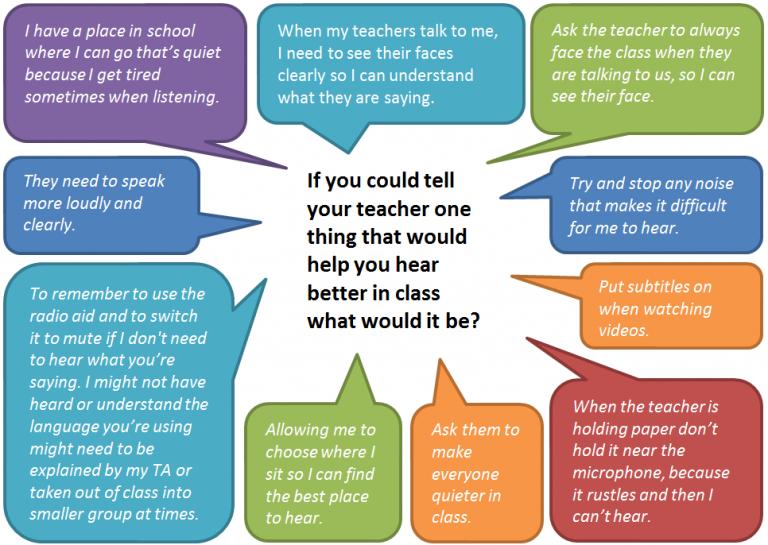Using language for learning

 Many students with a cochlear implant may have language skills that are age appropriate or appear to be following the content of lessons with little difficulty. However, students can experience difficulties with some of the finer detail or specifics of language. This could include:
Many students with a cochlear implant may have language skills that are age appropriate or appear to be following the content of lessons with little difficulty. However, students can experience difficulties with some of the finer detail or specifics of language. This could include:
Incidental learning – informal conversations that carry information which may take place in the lunch queue, on the bus, in the corridor that the deaf student may not be aware of.
Language ‘gaps’ – information about certain topics that they may have missed conversations about.
- later reading.
- Phonics.
- Extending writing skills – expanding sentences, use of language.
- Inferential skills, sarcasm, jokes.
- Taking things literally.
- Emotional language and spoken tone.
- Slogans, slang, text talk, colloquialisms.
What can you do to help (Click on the titles below for more information)?
Tips for teachers
We asked children and teenagers what advice they would give their teacher to enable them to hear better in class.

The link below takes you to another useful document with ideas for how to support in secondary schools.
Supporting the achievement of young people in secondary schools – Summary from NDCS
Key concepts
- What are the communication options for teenagers?
- How can we optimise the learning experience?
- What are the social and emotional considerations for teenagers?
- How can we ensure students perform at their best during exams?
- How can you support a child moving on from school?
- How can groups work together to promote understanding?
